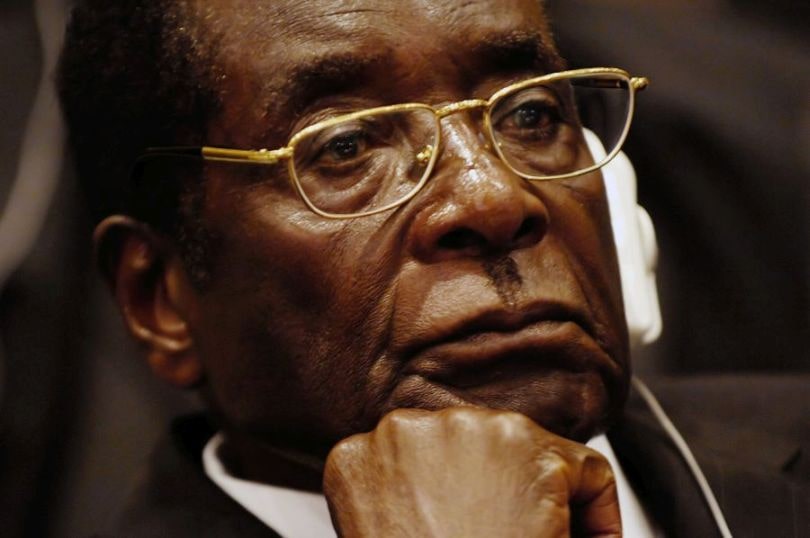
Robert Mugabe

Robert Mugabe
Check out the spectacular photograph in this BBC article. How would you like to see that for real? Sure, you would. How about building a Disneyland theme park next to it? The jury is still out on that one, but here is a quote from the same article, according to minister for tourism Walter Mzembi: the government [wants] to create a free zone with a banking centre “where even people who do not necessarily live in Zimbabwe can open bank accounts”.
Now here is the 64 cent question: with the ongoing banking crises and scandals, ordinary people and even so-called professional investors are in danger of losing money in the UK, the US, and certainly in Greece. So who on Earth would want to open a bank account in Zimbabwe where the government can, does and most likely will expropriate (steal) the property of citizens and non-citizens alike at the drop of a hat?
In 1969, Rhodesia declared independence unilaterally from the Imperial power, Great Britain. It had previously been managed successfully by a handful of whites, and with both education and living standards increasing slowly but surely for the natives, it would have blossomed into a state where – although with a limited franchise – people could have lived in safety and comfort. During UDI, Rhodesia fought against a terrorist campaign, and in spite of sanctions managed to feed its people, and to prosper. Alas, the pressure increased for one man-one vote, and in 1980, there was an election in which even illiterates were enfranchised. Robert Mugabe was the one man with the one vote, and he is still there, although now very old and rumoured not to be in the best of health.
Mugabe may be black on the outside but he is red on the inside. One of his policies was the Africanisation (theft) of white lands and property to be redistributed to the natives.
If you were a landless peasant, that probably sounded like a good idea, but was it? Taking a three thousand acre farm, cutting it up into one acre plots and handing it over to three thousand smallholders is insanity. If you don’t understand why, try this on for size. An automobile factory has two hundred men on a production line; working like this they turn out 3 cars per hour. Now let each man work on assembling a whole car by himself. You’d be lucky if he could turn out 3 a month.
Anyone who knows even a little bit about economics will tell you about the division of labour, and let’s not get into economies of scale, capital investment, and so on. The result of Mugabe’s insane policy of Africanisation is that Zimbabwe is now ranked 172 in the human development index, and has a life expectancy at birth of less than 52 years for both sexes. Zimbabwe’s older citizens have long been talking about the good old days under white rule when if they didn’t have the vote, they knew where the next meal was coming from.
Comrade Mugabe’s latest economic madness is a stock exchange for blacks only, which according to at least one commentator is a cover for a further attempt to steal from white businesses. This may just be the last of Zimbabwe’s golden eggs, but after the goose that laid it has been killed, what then – how about starvation?
It has to be said that even Mugabe is not all bad, unlike Western liberals he will have no truck with homosexuality. It remains to be seen though if even his most hard line supporters believe it is ‘Filthy’ gays who have trashed what was once the breadbasket of Africa rather than Mugabe himself. And it remains to be seen too if the best “treatment” for homosexuals is to imprison them with other men.
There is though light at the end of the tunnel; recently a man who had used a campaign poster of Mr Mugabe to wipe an unmentionable part of his anatomy, was acquitted of violating election laws. It may be that the legal system is not entirely subservient to Mugabe, or it may be someone whispered in the magistrate’s ear that the gaols are already full.
[The above op-ed was first published August 31, 2013.]
Back To Digital Journal Index